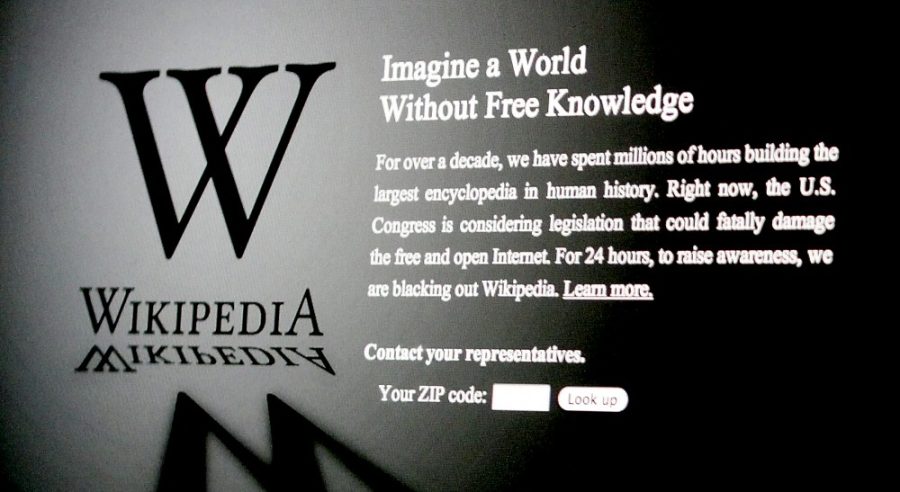A day without Wikipedia, Reddit and other sites may seem tough to handle, but if Congress passes the Stop Online Piracy Act and the Protect Intellectual Property Act, critics of the bills fear it may be a lifelong blackout.
On Wednesday, visitors trying to browse certain websites were instead taken to pages protesting against SOPA and PIPA, asking users to show their opposition to the proposed legislation by signing petitions or contacting their representatives. On Wikipedia, in bold letters, were the words “Imagine a world without free knowledge.” The only available entry on Wikipedia described SOPA and PIPA, and the reasoning behind the blackout.
“For over a decade, we have spent millions of hours building the largest encyclopedia in human history. Right now, the U.S. Congress is considering legislation that could fatally damage the free and open Internet. For 24 hours, to raise awareness, we are blacking out Wikipedia,” read the site’s main page.
If passed, the legislation could hold websites responsible for facilitating copyright infringement, and websites could be permanently shut down.
“They aren’t hosting copyrighted stuff on purpose, that’s not their goal, but are they going to be liable for that?” asked Matthew Hashim, an assistant professor of management information systems and a researcher of digital piracy. “The proposed legislation sounds like they would be.”
Some said the proposed legislation threatens the open and free nature of the Internet.
“From what I understand, it would make it more difficult to really share information because of copyright restrictions and the often opaqueness of the site and who owns rights to what on the Internet,” said Jon Cohen, a senior majoring in political science and linguistics.
Students who rely on Wikipedia to help with schoolwork were not happy with the site’s blackout, in addition to the possibility of the site shutting down if the proposed legislation were to pass.
“If I was writing a paper and needed some information and I didn’t have (Wikipedia), it would be kind of annoying,” said pre-business freshman Emily McSherry. “It’s always been around, and I don’t think it’s a problem. I haven’t really heard any negative side effects of it.”
Hashim said he was unsure if the site’s potential shutdown would negatively affect the study habits of students.
“I don’t think there should be an effect on students academically,” Hashim said. “Maybe how many songs they can load onto their iPod or iPhone, but those things are difficult to control anyway because the large group of peer-to-peer sharing.”
Site blackouts invited users to learn more about the bills, and promoted visitor participation to fight against them.
“Personally, I don’t think it (the legislation) is going to pass,” McSherry said, “because I haven’t heard anyone really supporting it.”









